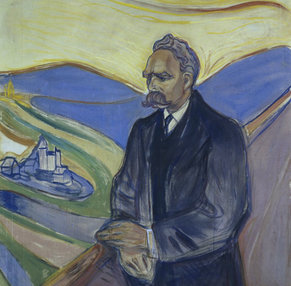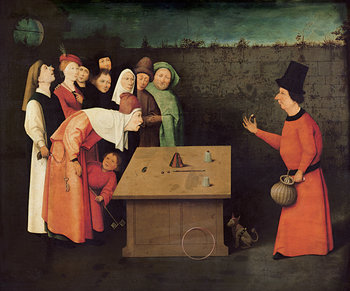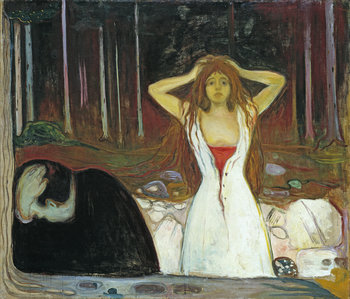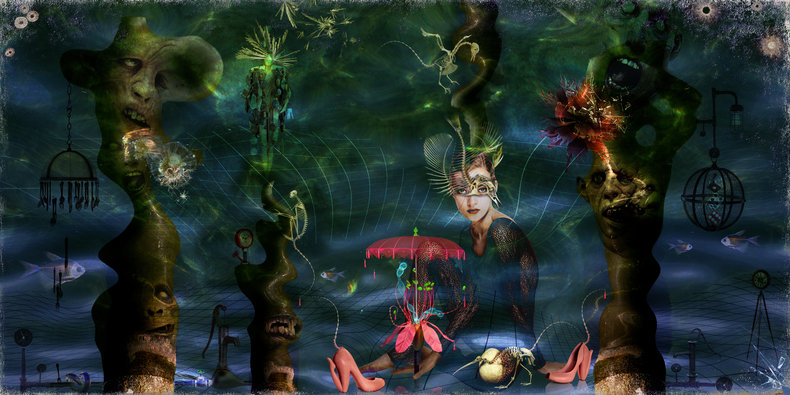
Relativism
Rejection of the very idea that universal truths exist.Rejection of Objectivity
A rejection of the existence of objectivity and sense that historical and current truisms are simply imposed by oppressive power structures. Facts may be viewed as tools of oppression invented by the system or simply as meaningless and flexible trivia.Complexity
A rejection of the minimalism that characterized modern art and architecture.Abstraction
Embrace of jargon and complex theories that are heavily abstracted with many conceptual layers such that they are almost impossible to communicate in plain language.Power Structures
Postmodern theory tends to view history, society, culture and language as imposed by oppressive power structures.Social Constructs
A willingness to dismiss things that are widely viewed as objective reality as mere social or cultural constructs.Language Engineering
A tendency towards claiming historical words are invalid and inventing new words that signal inclusion in postmodern tribes. Popular and historical language may be viewed as a tool of oppression layered with concepts that reinforce power structures.Absurdism
The idea that it is impossible to define any inherent meanings about anything. A type of extreme skepticism.Embrace of Subjective Experience
The embrace of subjective experience such as an emotion. For example, the argument that no one can tell you that your emotions aren't important or relevant with an objective argument.Idealism
The idea that reality is defined by fiction and not the other way around.Nihilism
Postmodernism suggests that life has no objective meaning but perhaps leaves the door open to subjective meaning set by each individual.Materialism
Generally speaking, postmodernism embraces materialism and consumerism and the general view that economic competition and material success is the goal of life.Individualism
Extreme individualism to the point that reality itself is subjective.Culture
Postmodernists view culture as a flexible thing that can be defined by two or more people. Western postmodernists have a tendency to view large Western cultures such as American culture as oppressive or otherwise deeply flawed. However, they have an aversion to criticizing cultures outside their own due to their relativist approach that views reality as a subjective experience that can only be understood from the inside.Rejection of Agency
A depreciation of individual agency in favor of the idea that we are victims of society, systems, history, tradition and norms. Power structures are viewed as deep conspiracies that are all powerful and individuals are viewed as blameless and helpless unless they are identified as part of the power structure.Medicalization
The view that a wide range of common human behaviors are a medical problem and a tendency to explain a great number of things with concepts from popular psychology.Critical Device
Postmodernism is ideally designed to knock down other theories and win arguments. For example, rejection of objective truth with the view that your subjective truth and self-invented concepts are reality is a pretty good way to feel that you win every argument.Ideology
The relativist idea that each individual has the right to create their own ideology and enforce it in their dealings with society.If relativism signifies contempt for fixed categories and those who claim to be the bearers of objective immortal truth, then there is nothing more relativistic than Fascist attitudes and activity. From the fact that all ideologies are of equal value, we Fascists conclude that we have the right to create our own ideology and to enforce it with all the energy of which we are capable.
― Benito Mussolini, "The Lasting" (1921) as quoted in Rational Man : A Modern Interpretation of Aristotelian Ethics (1962) by H. B. Veatch
Summary
Postmodernism is a broad academic trend based primarily on relativism and social constructionism. The following are basic characteristics of postmodernism.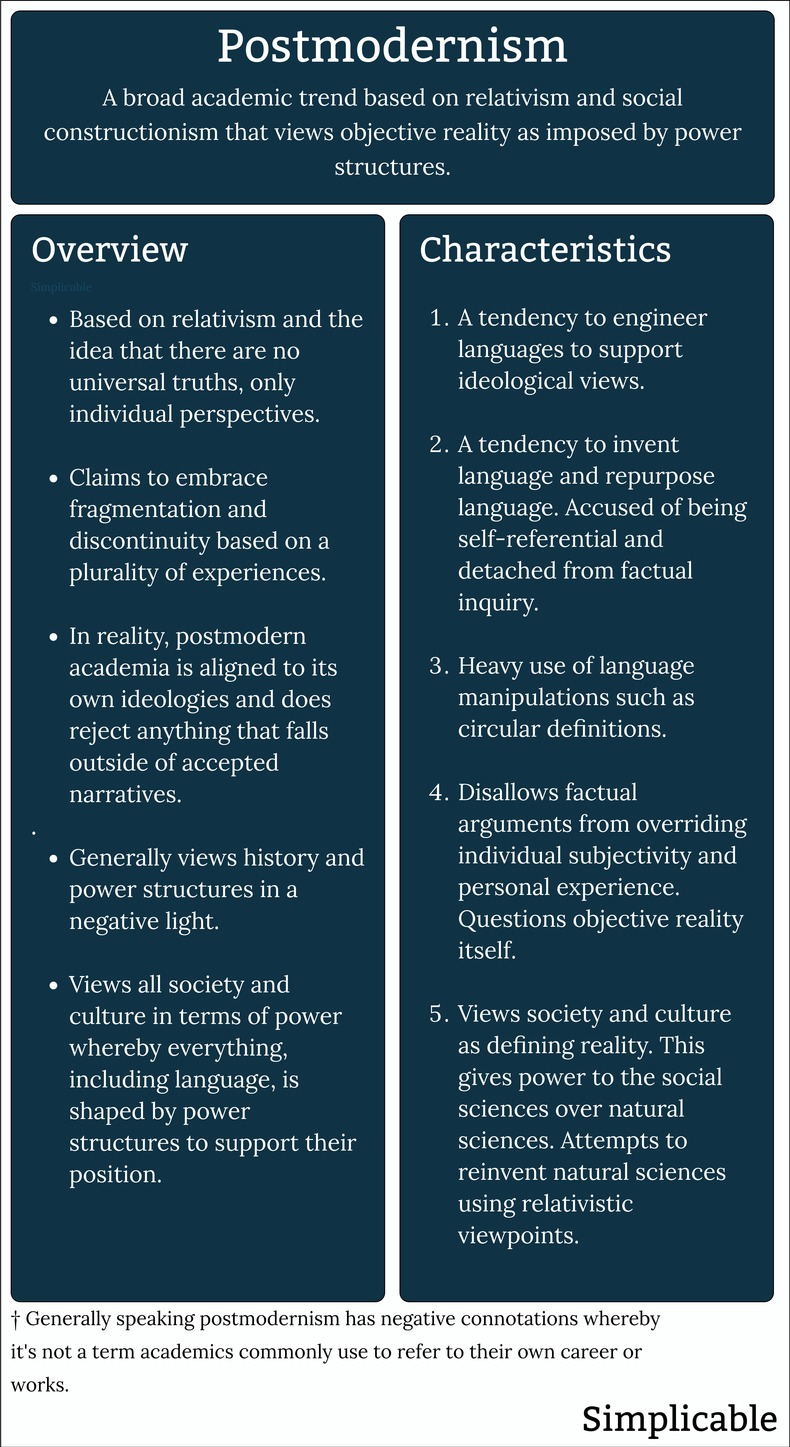
| Overview: Postmodernism | ||
Type | ||
Definition | A rejection of the very idea of objectivity and universal truisms in favor of subjective experience and flexible realities. | |
Related Concepts | ||



